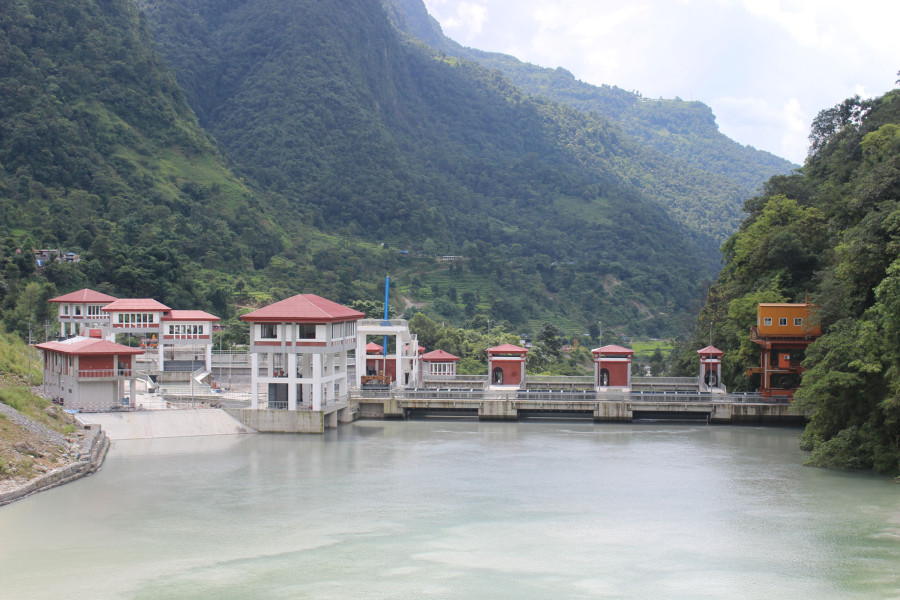Money
India proposes procedures for approving and facilitating electricity trade
The proposed provisions contradict India’s Cross Border Trade of Electricity Regulations, 2019.
Prahlad Rijal
The Central Electricity Authority of India has proposed procedures for approving and facilitating import and export of electricity between India and neighbouring countries which bar private entities from approaching it for developing cross-border transmission links, formerly ensured by India’s Cross Border Trade of Electricity Regulations, 2019.
“No other entity, such as prospective seller, buyer, generation plant developer, electricity trader of the neighbouring country, would be eligible for approaching, designated authority for planning and development of a cross-border transmission link,” states the draft.
As per the proposed rules, only the authority of the neighbouring country—in Nepal's case, the Nepal Electricity Authority—may approach the designated authority (Central Electricity Authority) for planning and developing a cross-border link.
This means independent power producers in Nepal cannot propose a dedicated transmission link from their hydel plants to pooling stations in India.
The proposed provisions contradict India’s Cross Border Trade of Electricity Regulations, 2019 which had kindled hope among power producers in Nepal as they allowed them to develop, operate and maintain a dedicated transmission system from their hydel plants to pooling stations in India.
“Provided that a participating entity having a generating station located in a neighbouring country may develop, operate and maintain a dedicated transmission system from the generating station to the pooling station within India at its own cost after obtaining all the necessary approvals from respective countries,” states the regulations issued in March 2019.
Also, the proposed rules are against the terms of the 2014 Power Trade Agreement between Nepal and India which explicitly mentions that the parties shall speed up interconnection planning and construction by inviting and assisting governmental, public or private sector enterprises of the two countries.
However, power utility officials say that the recently proposed rules by India’s power utility are, to an extent, in contradiction with the agreement between Nepal and India—which also assures non-discriminatory access to cross-border interconnections for all authorised licensed participants in the common electricity market—but necessary.
“Energy exchange between the two countries should not only be viewed in terms of market access, but also as a bilateral level mechanism which requires governments to step in and ensure import-export of electricity in a transparent manner,” said Prabal Adhikari, chief of the Power Trade Department of the Nepal Electricity Authority. “A level of involvement of government agencies and approval must be required as a safeguard mechanism, and the rules must not be viewed as market restrictions.”
Earlier, the Independent Power Producers’ Association had been buoyed by the prospect of building individual cross-border power lines.
“In line with the Indian government’s policy on allowing export of electricity produced in Nepal through the existing transmission lines or by developing a new dedicated system, the private hydroelectricity sector is ready to invest in building such infrastructure if there is a government-level understanding,” the association said in July.
After coming to know of the newly proposed rules, independent power producers in Nepal are contemplating other ways to sell electricity to India, apart from proposing direct cross-border links.
“We can still opt for forming joint ventures with public entities both Nepali and Indian and propose building dedicated power lines," said Shailendra Guragain, president of the association. “However, our government should push for an open market rather than abiding by the terms of a centralised power trading mechanism.”
According to the Central Electricity Authority of India, the objectives of the proposed procedures are to facilitate coordination with nodal agencies and authorities of neighbouring countries for transmission system planning, joint system studies, surveys, preparation of feasibility study reports, system development, construction, erection, monitoring, testing, commissioning, operation and maintenance of transmission system for import-export of electricity in a transparent manner.
If issued as they are, the procedures require Nepal’s power utility to include details of generation plants, quantity of power to be traded, timelines for commissioning of transmission systems, information on the type of terrain, forest and wildlife sanctuary, right-of-way constraints and preferred voltage levels.
The Central Electricity Authority has also proposed to form a joint operation committee to carry out functions pertaining to grid safety, security and operation.
***
What do you think?
Dear reader, we’d like to hear from you. We regularly publish letters to the editor on contemporary issues or direct responses to something the Post has recently published. Please send your letters to [email protected] with "Letter to the Editor" in the subject line. Please include your name, location, and a contact address so one of our editors can reach out to you.




 8.67°C Kathmandu
8.67°C Kathmandu














